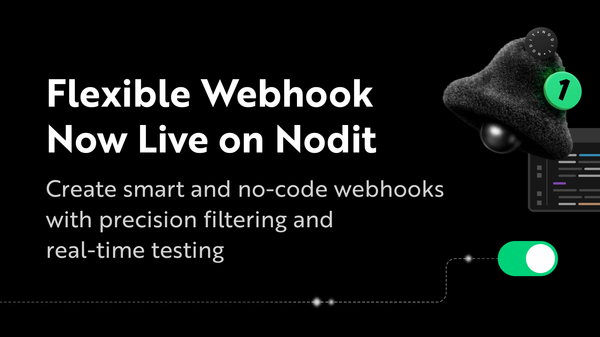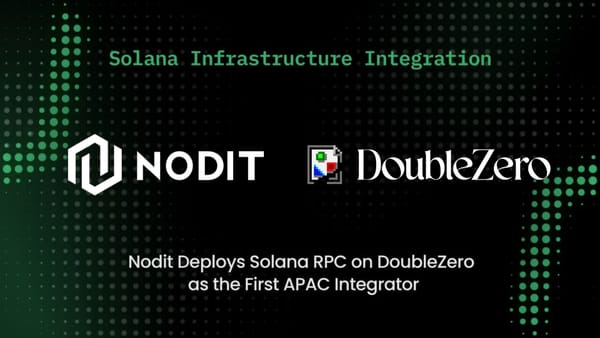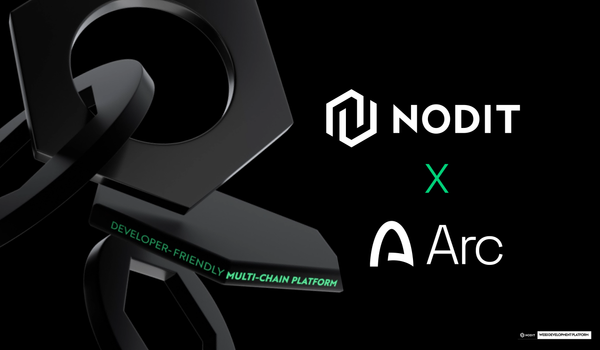Datasquare - Nodit’s Comprehensive indexed Blockchain Data Now Open and Accessible to All

Introduction
As blockchains essentially function as ledgers, the data on the ledgers is the key to leveraging blockchain technology. Whether you're developing decentralized applications(DApps), conducting market analytics, or tracking the flow of specific assets, having structured access to this data is crucial.
However, utilizing blockchain data is far from straightforward. Blockchain data is inherently unstructured and voluminous, requiring significant effort to organize and manage. This often involves writing complex scripts, handling large-scale databases, and ensuring data consistency across the network. The process of structuring and organizing this data for efficient access is known as 'Data Indexing'.
Recognizing these challenges, Nodit is proud to introduce Datasquare(https://datasquare.nodit.io/), a service that provides open access to the meticulously indexed blockchain data we've accumulated over years of expertise in blockchain data management. Datasquare offers developers a reliable dataset that significantly reduces the time and effort required to build and scale DApps.
In this post, we'll take a closer look at blockchain data indexing, the core technology behind Datasquare, and explore why it is essential.
What is Blockchain Data Indexing and How Does It Differ?
Indexing is a common technique used to enable faster retrieval and querying of data from a database. In the context of traditional databases, indexing involves creating a set of pointers for data, enabling direct access to specific key fields such as names, dates, or IDs. Indexing not only accelerates data retrieval but also ensures the data is returned in a structured and ordered manner.
Blockchain data indexing also aims to organize data for quick and efficient access. However, in addition to standard database indexing techniques, blockchain data indexing involves several additional considerations to accommodate the unique nature of blockchain technology:
- Handling Cumulative and Immutable Data: Unlike traditional databases where records can be updated or deleted, blockchain data is immutable, meaning once recorded, it cannot be altered. Indexing must account for this cumulative nature, referencing both recent data and historical states of the blockchain, ensuring accurate reconstruction of any past state.
- Tracking State Changes Over Time: The state of the blockchain at any given time is determined by all prior transactions and data. Thus, blockchain indexing must efficiently track and query these state changes over time, enabling features such as querying an account balance at a specific block height or viewing a smart contract's status at a particular moment.
- Managing the Block Structure: Blockchain data is grouped into blocks, each containing a list of transactions and metadata such as timestamps and cryptographic hashes. Indexing this block structure requires creating additional indices to efficiently retrieve data by individual transactions, entire blocks, or specific block attributes.
- Ensuring Consistency Across Nodes: In a decentralized blockchain network, maintaining data consistency across multiple nodes is crucial. Indexing must accommodate this distributed nature, ensuring that indexed data remains consistent and up-to-date across all nodes, even in the face of network delays or forks.
- Optimizing for Real-time Updates: Blockchain networks continuously grow as new blocks are added in real-time. Indexing systems must be designed to handle these constant updates efficiently, ensuring that indices reflect the latest state of the blockchain almost immediately.
- Balancing Security and Accessibility: Blockchain data often includes sensitive information such as user addresses or transaction details. Indexing systems must balance making data accessible for legitimate queries with protecting the privacy and security of the data, potentially involving encryption, access controls, or other security measures.
Who needs Datasquare?
For developers, indexing is crucial because it allows them to build DApps that require quick and efficient access to blockchain data. Without indexing, retrieving specific information from a blockchain could be prohibitively slow, hindering both performance and user experience. By organizing data for rapid querying, developers can ensure their DApps are responsive and capable of handling real-time demands.
For analysts, blockchain indexing is essential for conducting in-depth market analysis, monitoring asset flows, and generating insights from the massive amounts of data that blockchain networks produce. Proper indexing enables quick access to specific data points, facilitating effective trend tracking and the discovery of meaningful patterns. This approach enhances analysts' decision-making more informed and impactful.
For individuals, blockchain indexing enhances the usability of blockchain-based services. Whether tracking transaction history, verifying the status of a smart contract, or checking the balance of digital assets, indexing ensures that users can access this information instantly and accurately. This will lead the DApp users to a more seamless and intuitive experience crucial for the broader adoption of blockchain technology.
blockchain indexing is the backbone of efficient data management within the blockchain ecosystem and a fundamental technology for all stakeholders. Whether you’re developing, analyzing, or using blockchain applications, retrieving and interacting with data quickly would be practical and powerful for your work.
Start Your Data Exploration from Datasquare Dashboard Now!
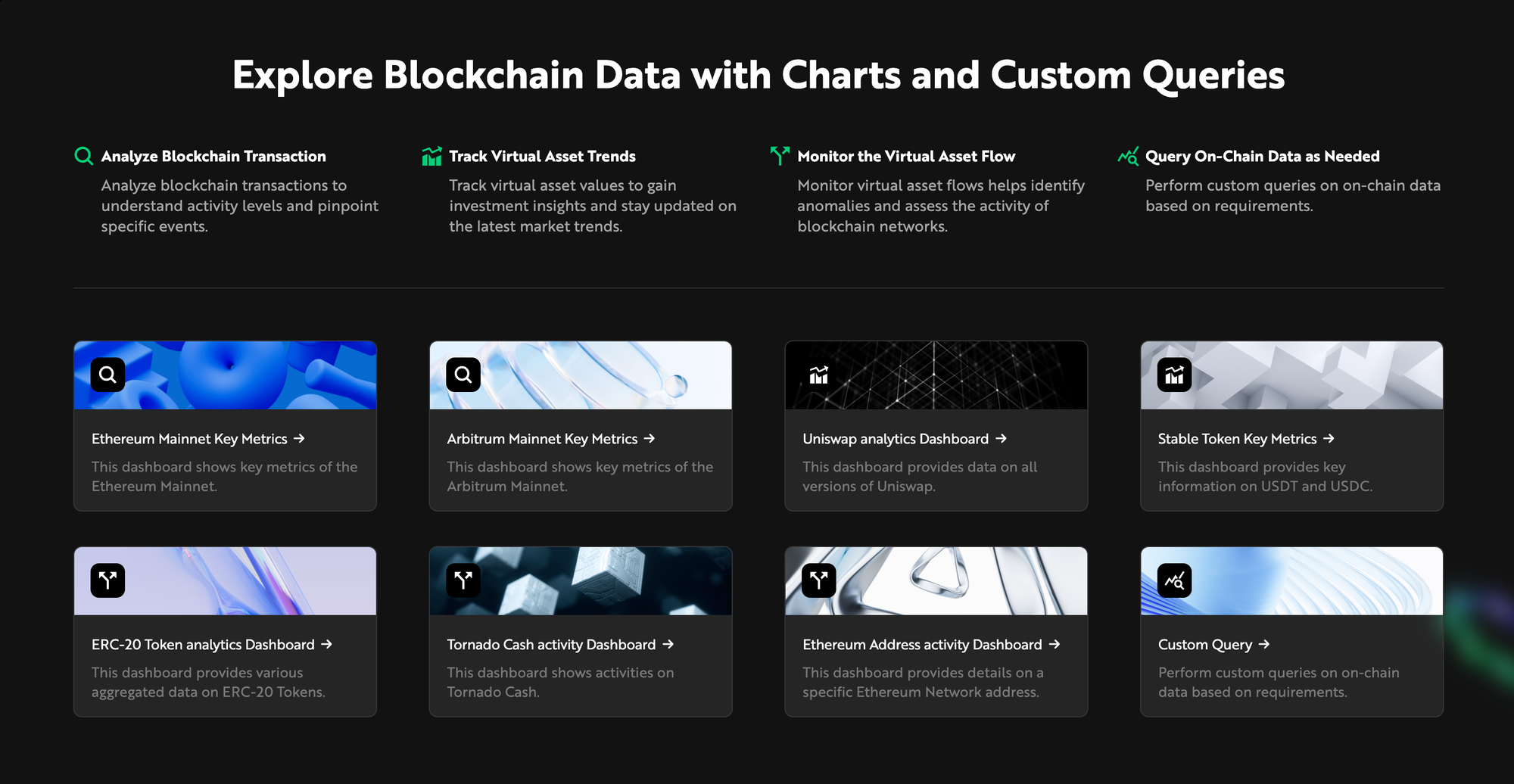
Nodit Datasquare provides developers, analysts, and businesses with seamless access to meticulously indexed blockchain data, allowing them to leverage this information in various ways. With our simple yet powerful query tools, you can easily access on-chain data such as token prices, addresses, supply volumes, holders, transaction counts, and more.
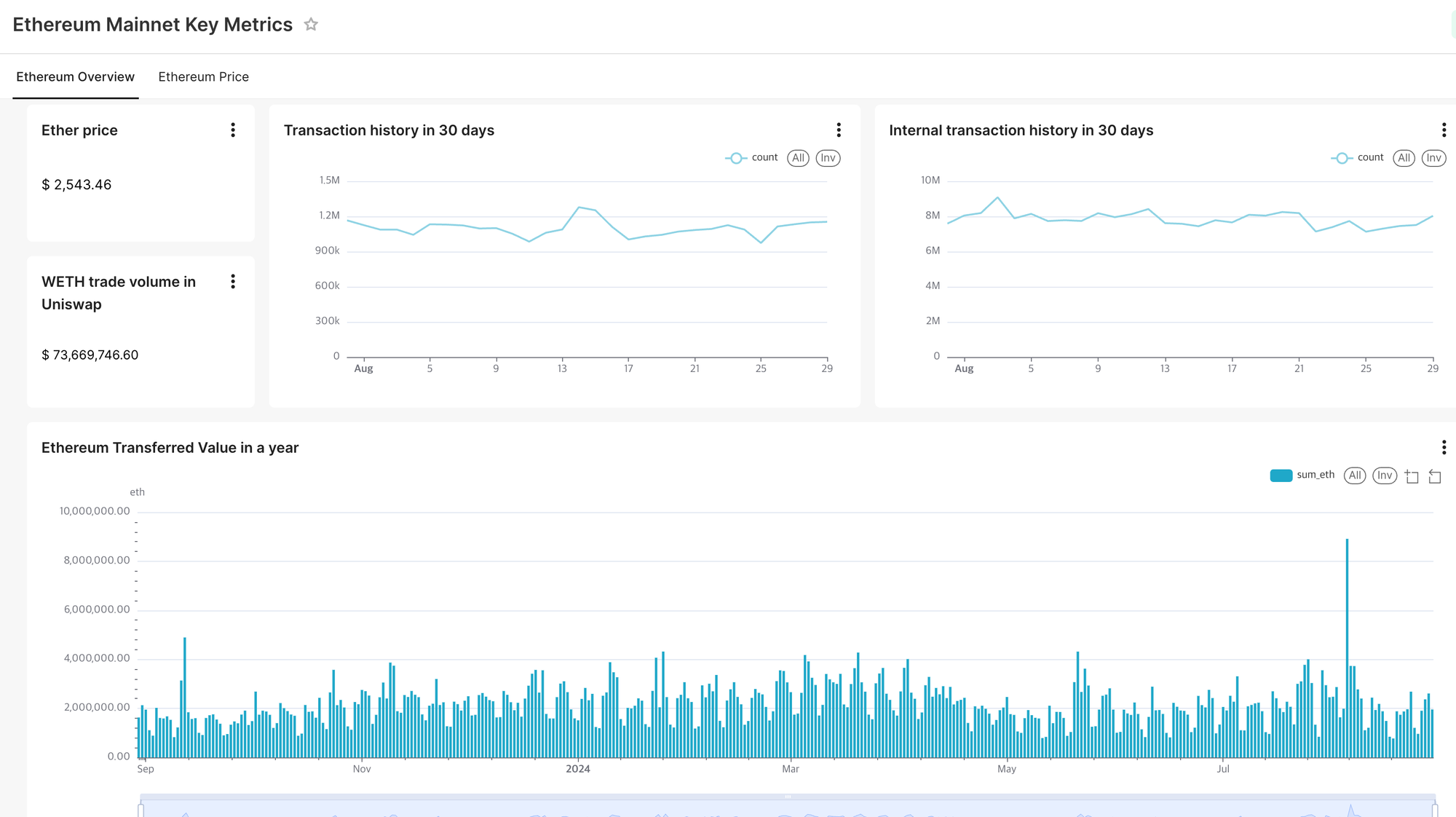
This indexed data can be utilized to create custom dashboards that offer real-time insights into blockchain activities, track asset movements, monitor network performance, and perform in-depth market analysis. Whether you're building DApps, generating business intelligence, or just need to retrieve accurate blockchain data quickly, Datasquare makes it straightforward to access and use the data you need without complexity.
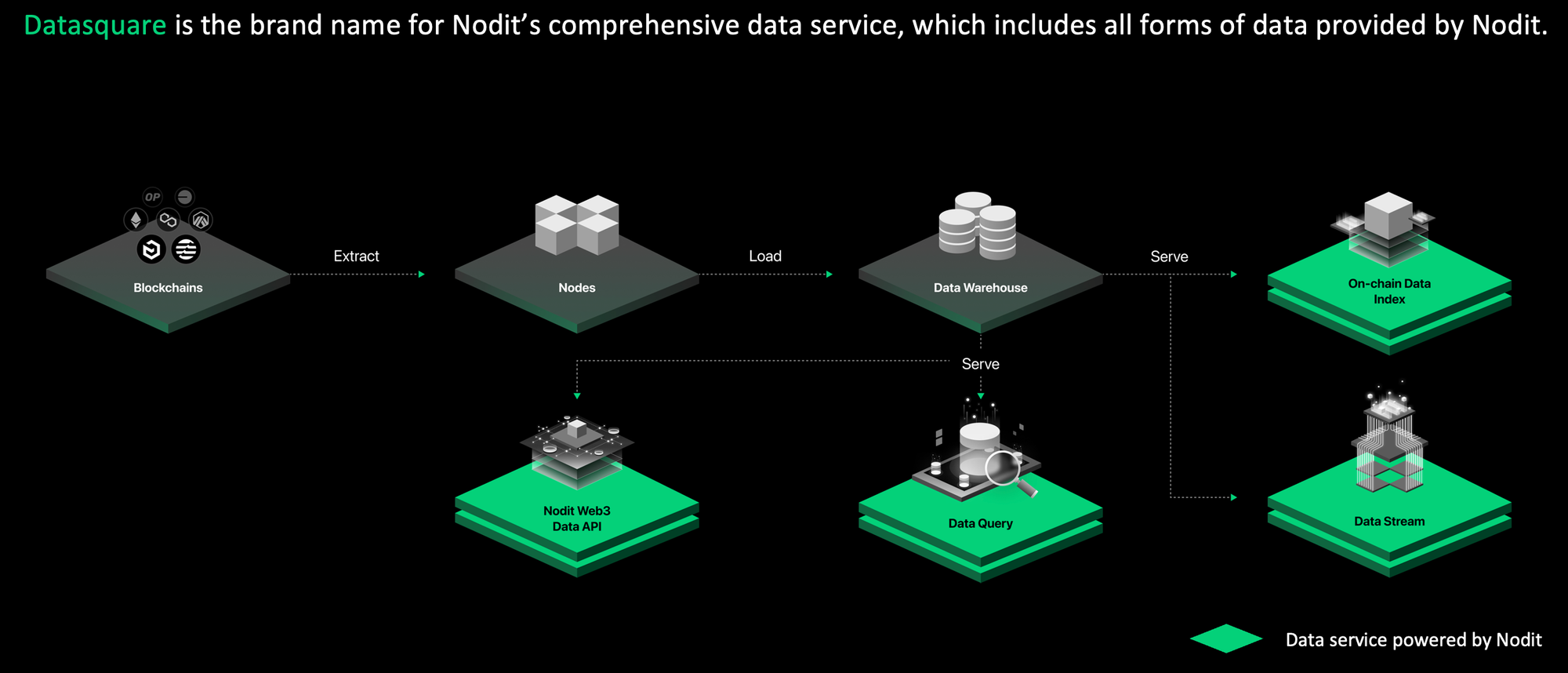
In addition to the Dashboard and query tools, we're also planning to offer streamlined datasets through various methods to meet your needs. For instance, you might want to access a data snapshot or even subscribe to our pipeline for real-time data integration. We're always open to exploring new possibilities! For business and technical inquiries, feel free to contact us at nodit@lambda256.io.
Conclusion
Datasquare is just at the beginning. Our goal is to get you equipped with the tools and knowledge needed to harness the full potential of blockchain data. In the next series of posts, we will continue to delve into the powerful technologies and expertise behind Datasquare. Stay tuned for our upcoming posts and updates as we unveil more innovations and how it can empower your blockchain projects! 😊


